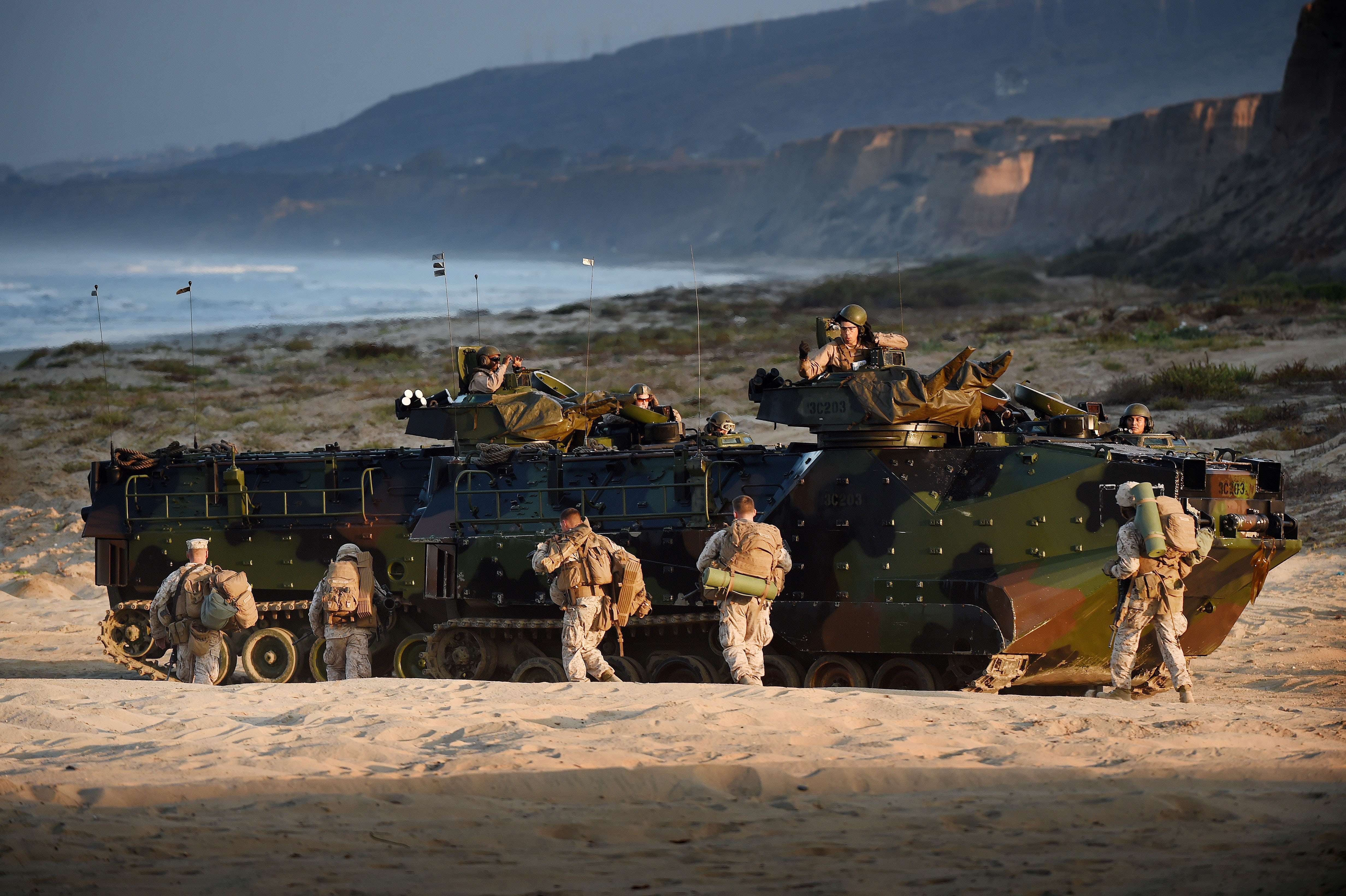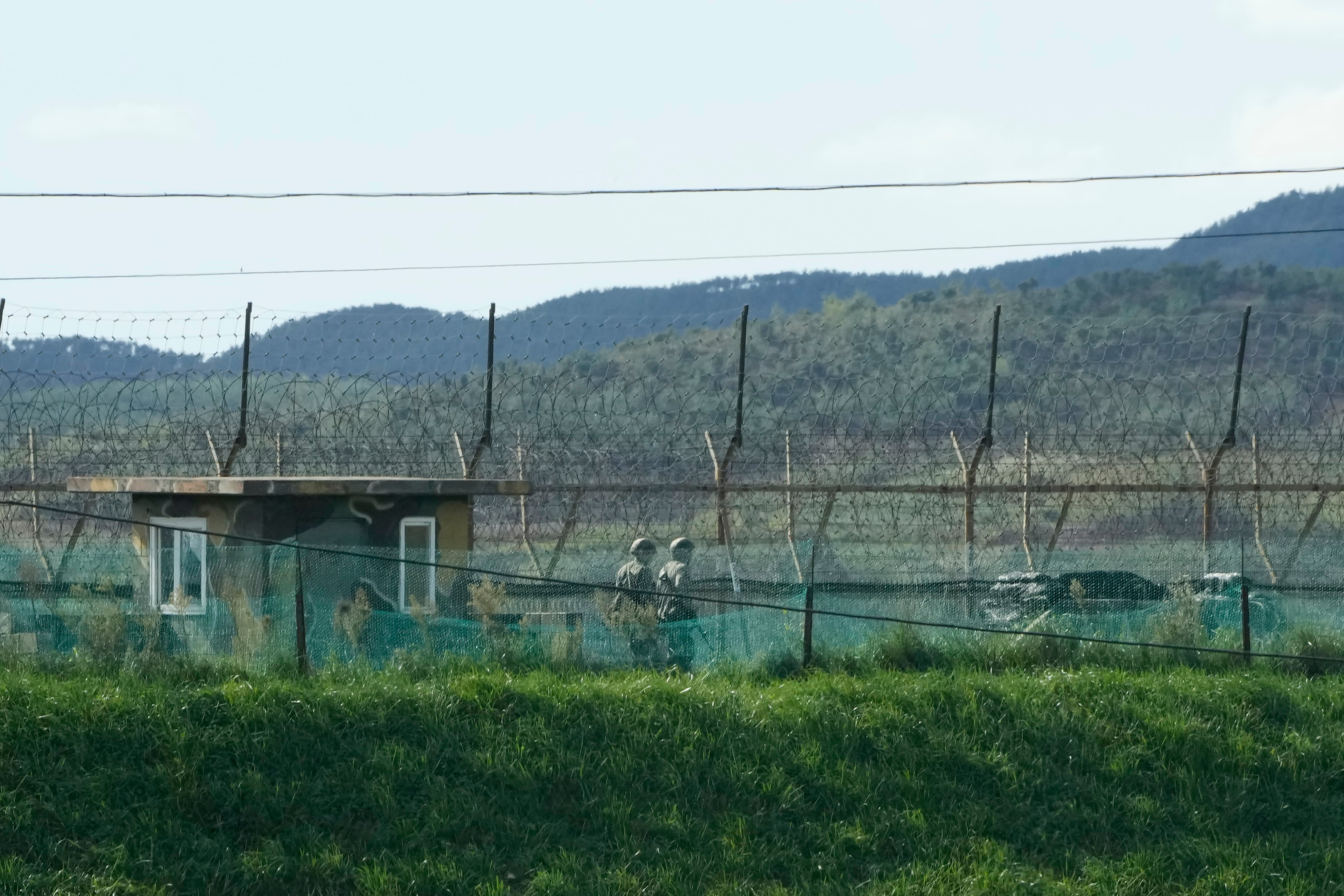SEOUL, South Korea (AP) — U.S. Defense Secretary Lloyd Austin arrived in South Korea on Wednesday for annual security talks expected to bolster the countries’ decades-long military alliance in the face of North Korean nuclear threats and mounting challenges from China.
The U.S.-South Korea alliance “is the linchpin of peace and security in this region,” Austin tweeted after landing.
But how substantially the alliance, sealed in the bloodshed of the 1950-53 Korean War, can be solidified is in doubt as South Korea remains locked in thorny historical disputes with Japan — another key American regional ally — and hesitates to actively join U.S.-led efforts to curb China’s rising strength.
“The alliance faces some obstacles. It’s not desirable for the South Korea-Japan history issue and other problems to work as obstacles” in South Korea’s national security, said Moon Seong Mook, a retired South Korean army general and analyst at the Korea Research Institute for National Strategy.
The meeting Thursday between Austin and his South Korean counterpart, Suh Wook, comes after the Pentagon released the results of a global posture review earlier this week. The review directs additional cooperation with allies and partners to deter “potential Chinese military aggression and threats from North Korea,” while informing Austin’s approval of the permanent stationing of a previously rotational attack helicopter squadron and artillery division headquarters in South Korea.
Boo Seung-Chan, a spokesman at South Korea’s Defense Ministry, said Tuesday the U.S. decision to permanently deploy the helicopter and artillery units was proof that both countries highly value their alliance.
Some experts said the alliance was at risk in recent years as then-President Donald Trump threatened to withdraw the 28,500 American troops stationed in South Korea if Seoul failed to drastically increase its financial support for them, and repeatedly complained of the cost of regular military drills with South Korea.
After his landmark first summit with North Korean leader Kim Jong Un in 2018, Trump baffled many by unilaterally announcing the suspension of major summertime military drills between the U.S. and South Korea, calling them “very provocative” and “tremendously expensive.”
But such worries have gradually eased since Trump’s successor, Joe Biden, said he would restore Washington’s alliances throughout the world.
RELATED

In Thursday’s meeting, the allies are expected to announce a strengthening of their ties and the U.S. security commitment to South Korea, Moon said. Although such announcements aren’t something new, Moon said it would still “discomfort North Korea, which basically aims to drive a wedge between South Korea and the U.S.” amid stalled nuclear disarmament talks.
South Korea has been struggling to strike a balance between the U.S., its most important security ally, and China, its biggest trading partner. South Korea suffered economic retaliation from China after allowing the U.S. to install a missile defense system in its territory in 2017 which Beijing views as a security threat.
“Washington is also looking for Seoul to do more beyond the (Korean) peninsula, which would involve trilateral cooperation with Japan despite tensions over history, and contributing to Asia’s maritime security despite objections from China,” said Leif-Eric Easley, a professor at Seoul’s Ewha University.




